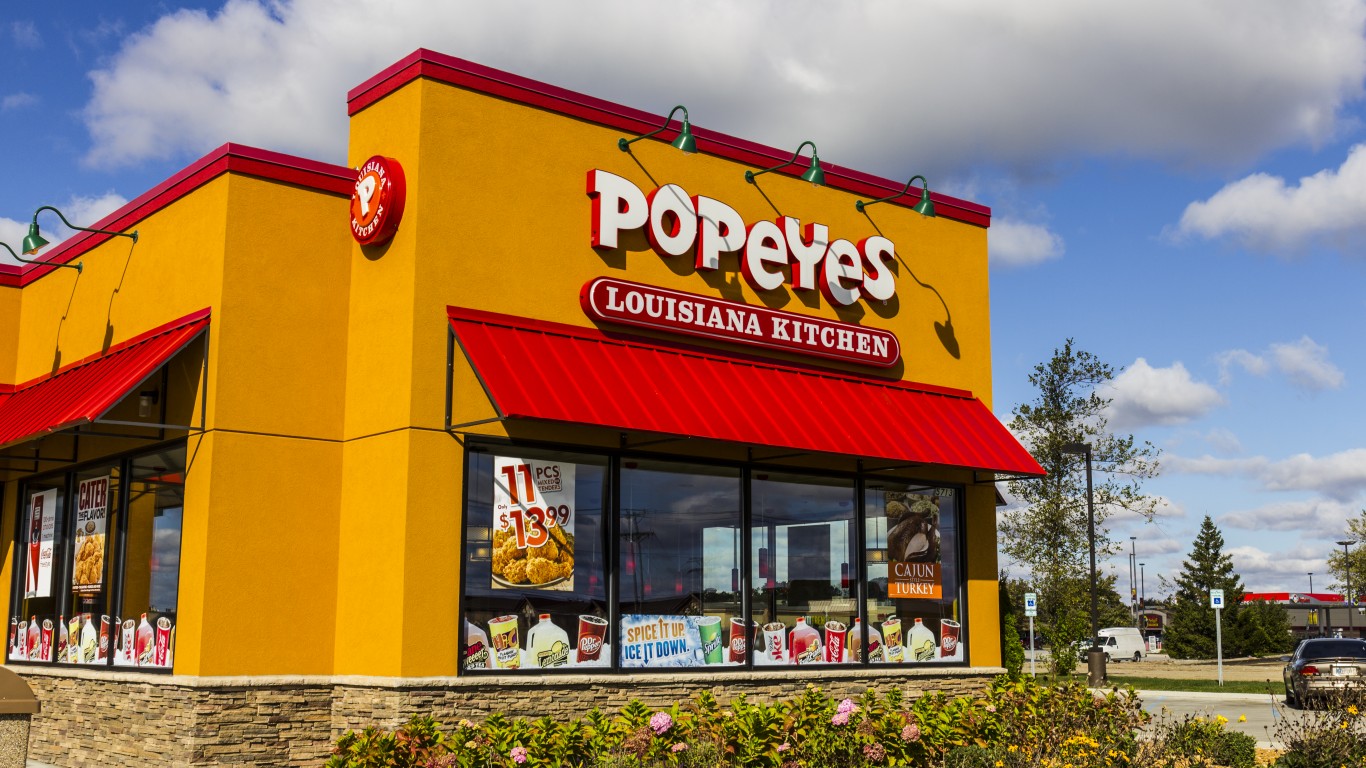

It’s been a long hard ride down from the top for Kraft Heinz Co. (NASDAQ: KHC) and its shareholders. On top of changes in food trends not going in the company’s favor, revenues have been flat for three years and are not expected to have any meaningful changes this year and next year. And even having Warren Buffett and Berkshire Hathaway Inc. (NYSE: BRK-A) deeply entrenched as a shareholder hasn’t seemed to matter.
Kraft Heinz is back in the mud again on Thursday after Credit Suisse lowered its target price down to $26 from $33 and maintained an Underperform rating. The firm’s analysts, Robert Moskow and Jacob Nivasch, are pointing to continued uncertainty regarding an ongoing investigation by the Securities and Exchange Commission. The sad thing is that the current market value of the entire Kraft Heinz empire has dropped so much that its destroyed more shareholder value than most companies can ever even grow into, and even the great Warren Buffett has said they are unable to make certain contributions to the income and balance sheet while the SEC issue is outstanding.
The company’s May 6 filing signaled that Kraft Heinz would be restating its financial statements going back to 2016. This followed an investigation into procurement practices that revealed misconduct by employees, and Kraft Heinz further noted that the at-issue financial results could no longer be relied upon due to certain misstatements contained in those financial statements. The headcount reduction after the merger may have been the cause or may have allowed that breakdown of internal controls. Analysts had started formally bailing out early in 2019.
As a result, Kraft Heinz said that it would not be able to file its March 30, 2019, quarterly financial report on time as it wraps up its 2018 annual report, which had also been delayed. Without much word from the company, Credit Suisse’s team pointed out that the SEC’s investigation into its internal controls could also negatively impact its forward outlook.
The team lowered 2019 and 2020 earnings per share (EPS) expectations for Kraft Heinz as well, down to $2.68 from $2.80 for 2019 and down to $2.61 from $2.85 for 2020. And to make matters worse, the team cited significant uncertainty around potential dilution from corporate divestitures and from the company’s own reinvestment needs.
Downgrades like this can be tricky. After all, they might be major or they might be a tiny amount. Still, Wall Street operates under the belief that if you see one cockroach there are many more lurking elsewhere. That said, Credit Suisse admitted that it’s not unaware if the Commission is satisfied with the company’s response. They are also not aware if accounting firm PwC will approve the Kraft Heinz restated financials.
Thursday’s report said:
Contrarian investors are wondering whether Kraft Heinz’ stock has upside potential once the company gets to the end of this SEC investigation. But we have no visibility into whether the SEC is satisfied with the company’s response, whether its accounting firm PwC will sign off on the financials, or whether the company has put in place sufficient controls to restore confidence in its financial reporting. Bigger picture, we fear that the dramatic reduction in Kraft Heinz’ headcount after its merger (approx. -28%) may have played a role in the breakdown of internal controls. When a company loses institutional knowledge in highly complex areas of the business, the consequences can be severe. We think incoming CEO Miguel Patricio will need to make additional cuts to the company’s forward outlook and investments to address these problems.
As 24/7 Wall St. noted previously, the error made by Warren Buffett in Kraft Heinz is one that he and the Berkshire Hathaway team might make over and over in the future.
Credit Suisse’s new downsized $26 target price is based on 10 times the firm’s enterprise value to EBITA multiple for 2020. The team also believes that Kraft Heinz will trade roughly 10% to 15% cheaper than its peers given the uncertainty surrounding the company.
Credit Suisse also has a better and worse scenario it views for most research reports. The firm’s Grey Sky scenario went down to $20 from $28 and it assumes that Kraft Heinz is forced to reinvest at a higher rate than anticipated. That would cause an even larger drop in EBITDA margin. Even the Blue Sky scenario was cut to $36 from $55 as Credit Suisse loses faith in a rapid recovery.
The March 31-end quarterly filing for Berkshire Hathaway addressed the holdings of Kraft Heinz, as follows:
Berkshire currently owns 325,442,152 shares of Kraft Heinz common stock representing 26.7% of the outstanding shares. Shares of Kraft Heinz common stock are publicly-traded and the fair value of our investment was approximately $10.6 billion at March 31, 2019 and $14.0 billion at December 31, 2018. The carrying value of our investment was approximately $13.7 billion at March 31, 2019 and $13.8 billion at December 31, 2018. As of May 3, 2019, Kraft Heinz has not filed its 2018 Form 10-K with the Securities and Exchange Commission. In addition, Kraft Heinz has not made its financial statements for the first quarter of 2019 available to Berkshire. Accordingly, Berkshire does not have the necessary financial information to determine its share of the earnings and other comprehensive income of Kraft Heinz for the first quarter of 2019. As a result, Berkshire’s first quarter 2019 earnings and other comprehensive income exclude such amounts. Berkshire will record its share of Kraft Heinz’s earnings and other comprehensive income for the three months ended March 31, 2019 during the period that such information becomes available. We recorded equity method earnings in the first quarter of 2018 of approximately $265 million. We received dividends on the common stock of $130 million and $203 million in the first quarter of 2019 and 2018, respectively, which we recorded as reductions of our investment.
There are rarely two identical cases of accounting errors and business missteps in Corporate America. This one involves 3G and Warren Buffett, and it’s proof that errors can and will likely continue to be made — even in industry giants such as Kraft Heinz. Is it possible that there was more to Buffett’s resignation from the Kraft Heinz’ board of directors back in early 2018?
With a 3.1% drop to $27.40 on Thursday, Kraft Heinz is now valued at $33.4 billion. That’s down about 58% from the 52-week high of $64.99 and it’s down just over 70% from its high above $92 back in 2017.
Sponsored: Want to Retire Early? Here’s a Great First Step
Want retirement to come a few years earlier than you’d planned? Or are you ready to retire now, but want an extra set of eyes on your finances?
Now you can speak with up to 3 financial experts in your area for FREE. By simply clicking here you can begin to match with financial professionals who can help you build your plan to retire early. And the best part? The first conversation with them is free.
Click here to match with up to 3 financial pros who would be excited to help you make financial decisions.
Thank you for reading! Have some feedback for us?
Contact the 24/7 Wall St. editorial team.



